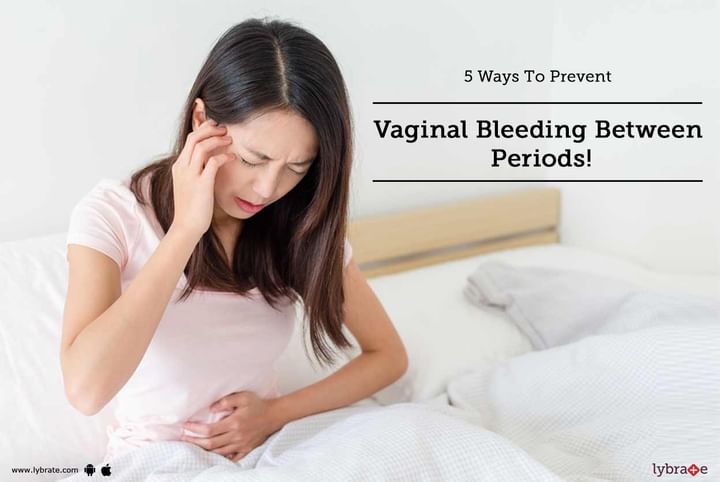Get the App
For Doctors
Login/Sign-up
Last Updated: Oct 23, 2019
BookMark
Report
5 Ways To Prevent Vaginal Bleeding Between Periods!
Many women experience unusual vaginal bleeding between periods at some point in their lives. It is also known as metrorrhagia. Vaginal bleeding is thought to be abnormal in the following cases:
1. When your menstrual period is not expected
2. When your menstrual flow is lighter or heavier than normal
3. At unexpected stages in life. For example, when you are pregnant or after you have attained menopause.
Bleeding during periods is not a normal condition. Usually, the duration of the cycle is about 21 – 35 days. Abnormal vaginal bleeding has numerous conceivable causes. Independently, it doesn't show a genuine condition.
- Mid-cycle bleeding can be caused due to ovulation.
- Two hormones that regulate the menstrual cycle are progesterone or oestrogen. A condition of hormonal imbalance which is known as Polycystic ovary syndrome (PCOs) causes interference with normal ovulation. This results in problems in thyroid glands as well as causes dysfunctional ovaries.
- Medications such as birth control pills are capable of causing abnormal bleeding, especially with the irregular intake of such medications.
- Infections or inflammation caused in the pelvic regions such as uterus, vagina, cervix, ovaries or fallopian tubes are capable of causing abnormal bleeding. STIs (Sexually Transmitted Diseases) and PIDs (Pelvic inflammatory disease) are often the cause of such a condition.
- Although Cancer is not one of the primary causes, cancer in organs such as the uterus, vagina, cervix and ovaries are capable of causing abnormal bleeding during periods.
How it can prevented
- Maintaining a healthy diet. Women who are either underweight or overweight tend to have more problems with abnormal bleeding
- Relaxation practices should be followed so that stress is reduced. Stress can cause abnormal bleeding.
- Non-steroidal anti-inflammatory drugs (NSAID) should be consumed to reduce menstrual bleeding. Examples are ibuprofen or naproxen.
- In case of consumption, birth control pills should be taken as per the prescription only and regularly at the same time.
- Hormone therapy (using external hormones in a medical treatment) can be used in order to regulate menstrual cycles, stabilize the endometrium which is the lining of the uterus as well as to rectify hormonal imbalances. If you wish to discuss about any specific problem, you can consult a gynaecologist and ask a free question.



+1.svg)
